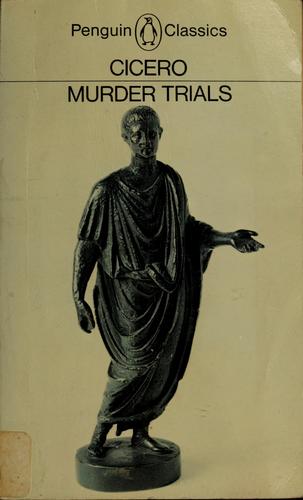
Murder Trials PDF
1975·2.3614 MB·other
Most books are stored in the elastic cloud where traffic is expensive. For this reason, we have a limit on daily download.
Preview Murder Trials
Description:
"Whereas the place for prejudice is a public meeting, a court of law is the adobe of truth." Cicero was still in his twenties when he got Sextus Roscius off a charge of murdering his father and nearly sixty when he defended King Deiotarus, accused of trying to murder Caesar. In between (with, among others, his speeches for Cluentius and Rabirius), he built a reputation as the greatest orator of his time. Cicero defended his practice partly on moral or compassionate grounds of "human decency" - sentiments with which we today would agree. His clients generally went free. And in vindicating men - who sometimes did not deserve it - he left us a mass of detail about Roman life, law and history and, in two of the speeches, graphic pictures of the "gun-law" of small provincial towns. For more than seventy years, Penguin has been the leading publisher of classic literature in the English-speaking world. With more than 1,700 titles, Penguin Classics represents a global bookshelf of the best works throughout history and across genres and disciplines. Readers trust the series to provide authoritative texts enhanced by introductions and notes by distinguished scholars and contemporary authors, as well as up-to-date translations by award-winning translators.
See more
The list of books you might like
Most books are stored in the elastic cloud where traffic is expensive. For this reason, we have a limit on daily download.
